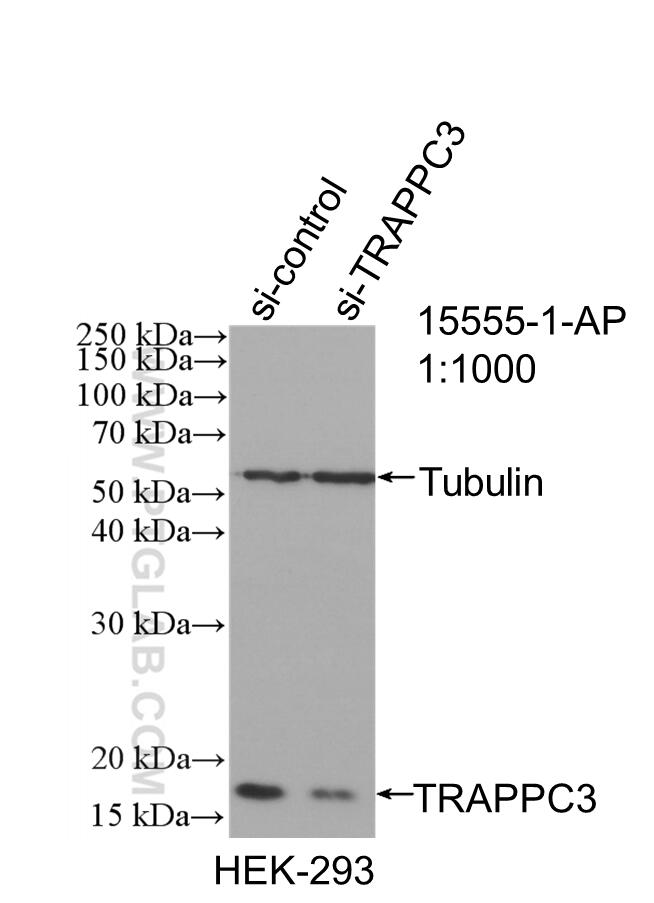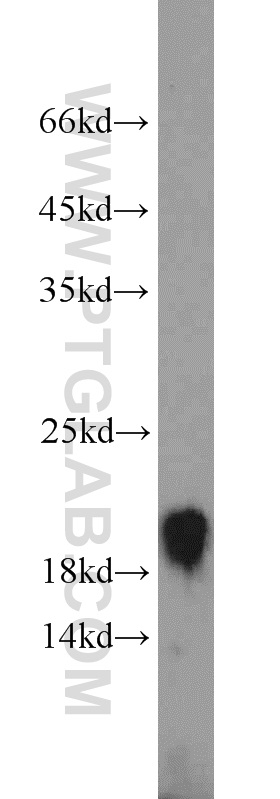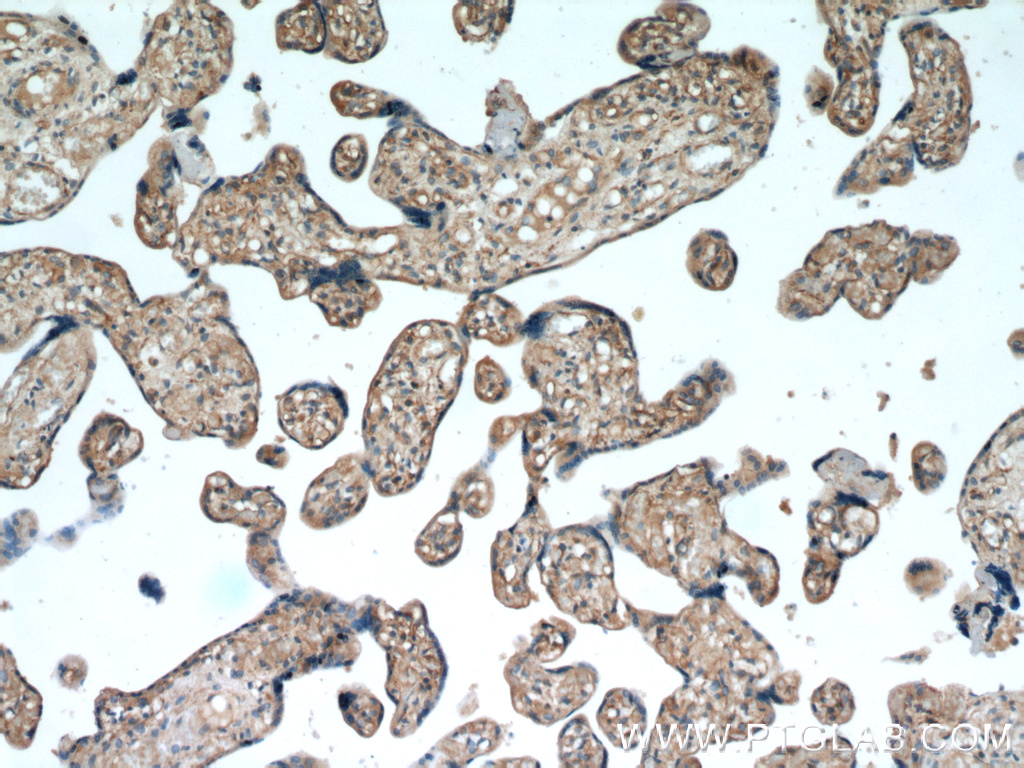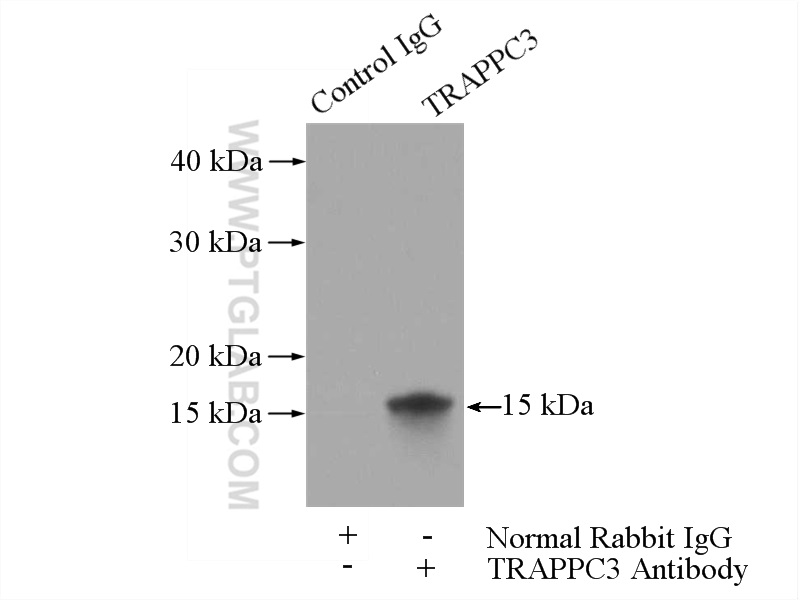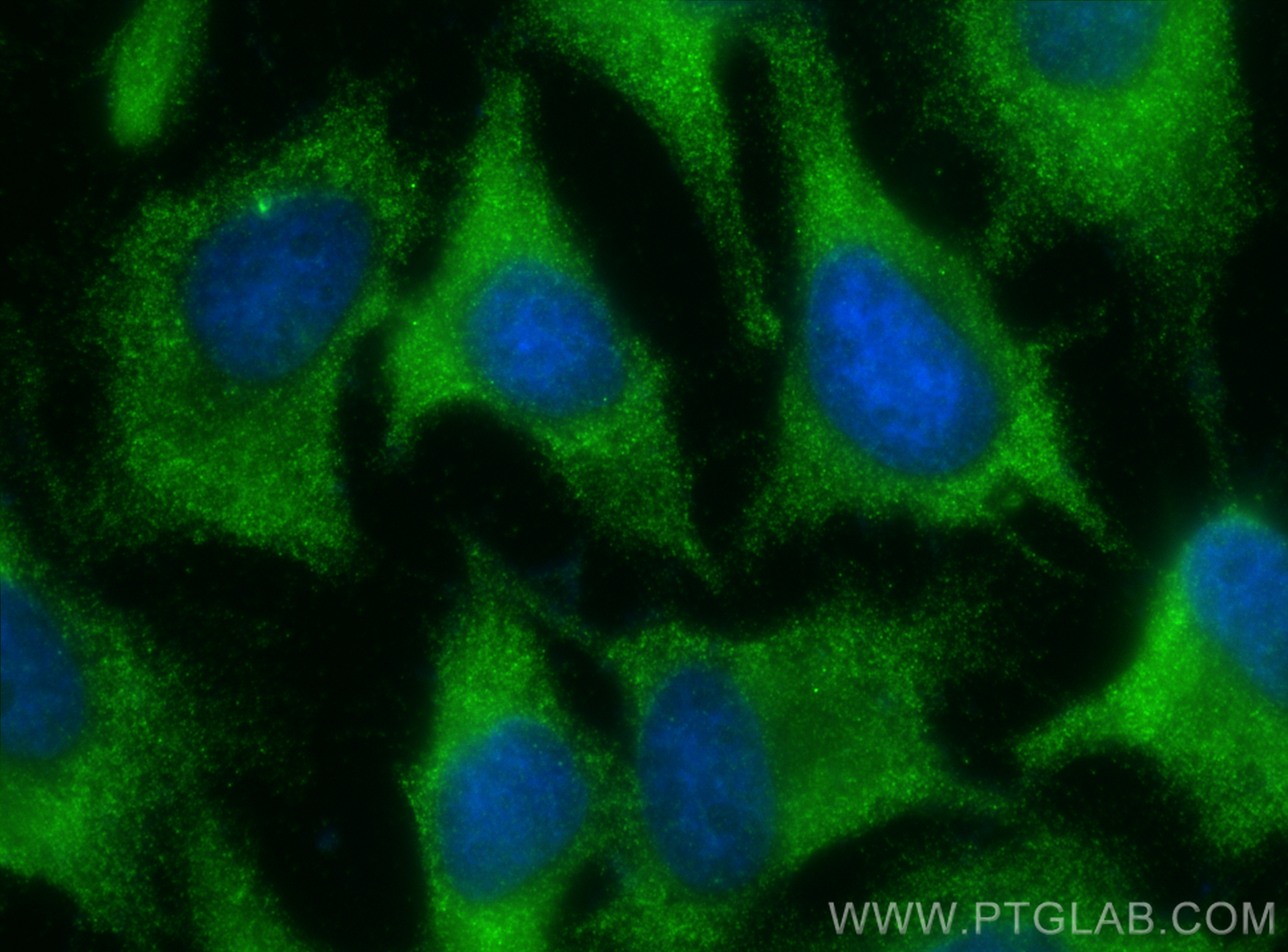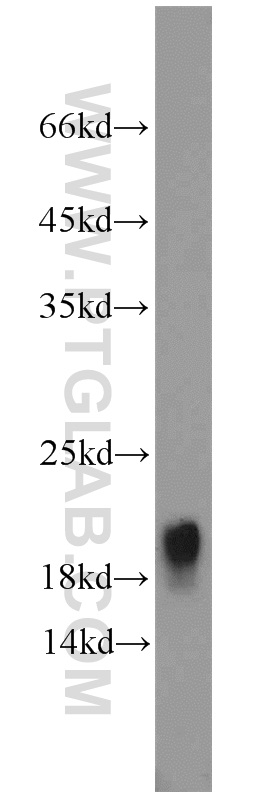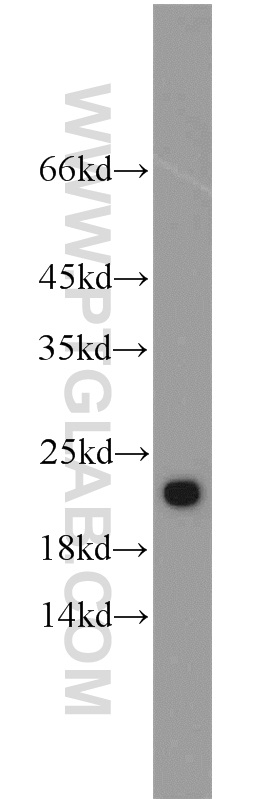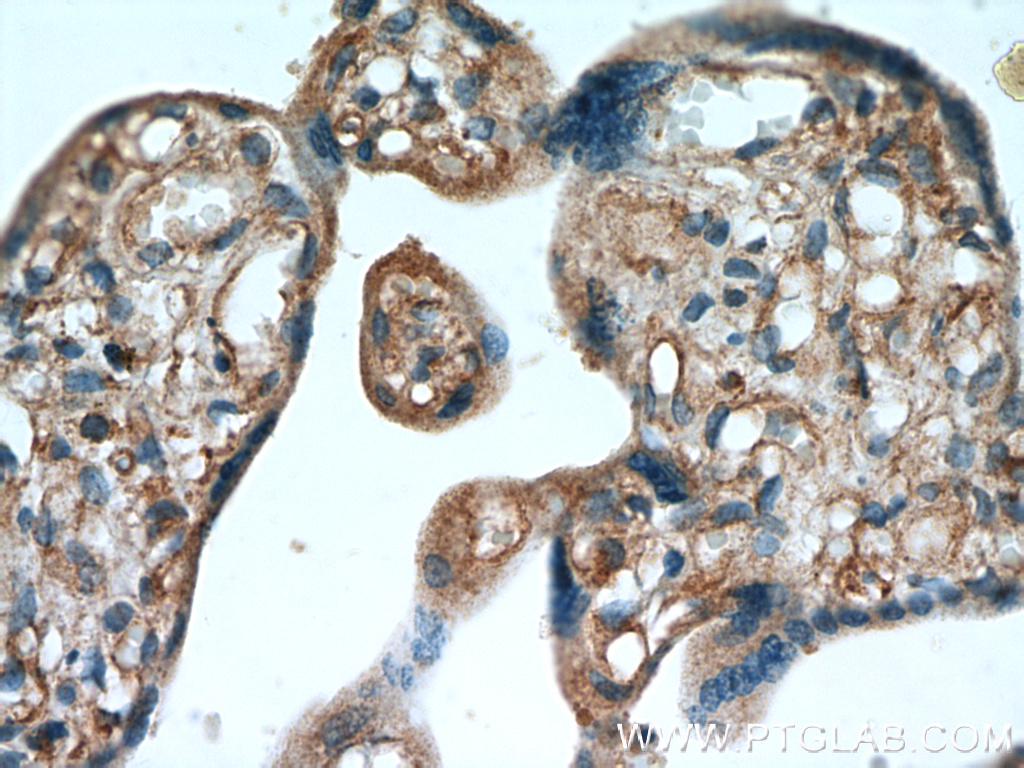验证数据展示
经过测试的应用
| Positive WB detected in | mouse liver tissue, PC-3 cells, HEK-293 cells, mouse small intestine tissue |
| Positive IP detected in | mouse liver tissue |
| Positive IHC detected in | human placenta tissue Note: suggested antigen retrieval with TE buffer pH 9.0; (*) Alternatively, antigen retrieval may be performed with citrate buffer pH 6.0 |
| Positive IF/ICC detected in | HeLa cells |
推荐稀释比
| 应用 | 推荐稀释比 |
|---|---|
| Western Blot (WB) | WB : 1:500-1:1000 |
| Immunoprecipitation (IP) | IP : 0.5-4.0 ug for 1.0-3.0 mg of total protein lysate |
| Immunohistochemistry (IHC) | IHC : 1:20-1:200 |
| Immunofluorescence (IF)/ICC | IF/ICC : 1:200-1:800 |
| It is recommended that this reagent should be titrated in each testing system to obtain optimal results. | |
| Sample-dependent, Check data in validation data gallery. | |
发表文章中的应用
| WB | See 7 publications below |
产品信息
15555-1-AP targets TRAPPC3 in WB, IHC, IF/ICC, IP, ELISA applications and shows reactivity with human, mouse samples.
| 经测试应用 | WB, IHC, IF/ICC, IP, ELISA Application Description |
| 文献引用应用 | WB |
| 经测试反应性 | human, mouse |
| 文献引用反应性 | human, mouse |
| 免疫原 | TRAPPC3 fusion protein Ag7924 种属同源性预测 |
| 宿主/亚型 | Rabbit / IgG |
| 抗体类别 | Polyclonal |
| 产品类型 | Antibody |
| 全称 | trafficking protein particle complex 3 |
| 别名 | CDABP0066, BET3 homolog, BET3 |
| 计算分子量 | 20 kDa |
| 观测分子量 | 20-22 kDa |
| GenBank蛋白编号 | BC007662 |
| 基因名称 | TRAPPC3 |
| Gene ID (NCBI) | 27095 |
| RRID | AB_2208142 |
| 偶联类型 | Unconjugated |
| 形式 | Liquid |
| 纯化方式 | Antigen affinity purification |
| UNIPROT ID | O43617 |
| 储存缓冲液 | PBS with 0.02% sodium azide and 50% glycerol , pH 7.3 |
| 储存条件 | Store at -20°C. Stable for one year after shipment. Aliquoting is unnecessary for -20oC storage. |
背景介绍
TRAPPC3 (trafficking protein particle complex 3, also known as Bet3) is a component of TRAPP, a complex involved in the tethering of transport vesicles to the cis-Golgi membrane. There are three TRAPP complexes identified in yeast with distinct roles: TRAPPI in ER-Golgi traffic, TRAPPII in intra-Golgi and endosome-Golgi traffic, and TRAPPIII in autophagy. Recently it has been proposed that at least two complexes exist in mammals. TRAPPC3 is the most conserved subunit of TRAPP and has been used to precipitate the intact tethering complex both from yeast and from human cells. It has also been reported that TRAPPC3 is required for Rabin8 centrosome trafficking and ciliogenesis. Expressed ubiquitously, TRAPPC3 protein is present in both membrane-bound and cytosolic forms. This antibody recognizes the endogenous 20-22 kDa TRAPPC3 in multiple cell lines. (15728249, 21273506, 23394947)
实验方案
| Product Specific Protocols | |
|---|---|
| WB protocol for TRAPPC3 antibody 15555-1-AP | Download protocol |
| IHC protocol for TRAPPC3 antibody 15555-1-AP | Download protocol |
| IF protocol for TRAPPC3 antibody 15555-1-AP | Download protocol |
| IP protocol for TRAPPC3 antibody 15555-1-AP | Download protocol |
| Standard Protocols | |
|---|---|
| Click here to view our Standard Protocols |
发表文章
| Species | Application | Title |
|---|---|---|
Cell A systematic mammalian genetic interaction map reveals pathways underlying ricin susceptibility. | ||
Proc Natl Acad Sci U S A Primary cilia membrane assembly is initiated by Rab11 and transport protein particle II (TRAPPII) complex-dependent trafficking of Rabin8 to the centrosome. | ||
Int J Biol Sci Defective neurite elongation and branching in Nibp/Trappc9 deficient zebrafish and mice | ||
J Biol Chem The C7orf43/TRAPPC14 component links the TRAPPII complex to RABIN8 for preciliary vesicle tethering at the mother centriole during ciliogenesis. | ||
Signal Transduct Target Ther RING finger 138 deregulation distorts NF-кB signaling and facilities colitis switch to aggressive malignancy. | ||
Metabolites Integrating TCGA and Single-Cell Sequencing Data for Hepatocellular Carcinoma: A Novel Glycosylation (GLY)/Tumor Microenvironment (TME) Classifier to Predict Prognosis and Immunotherapy Response |
